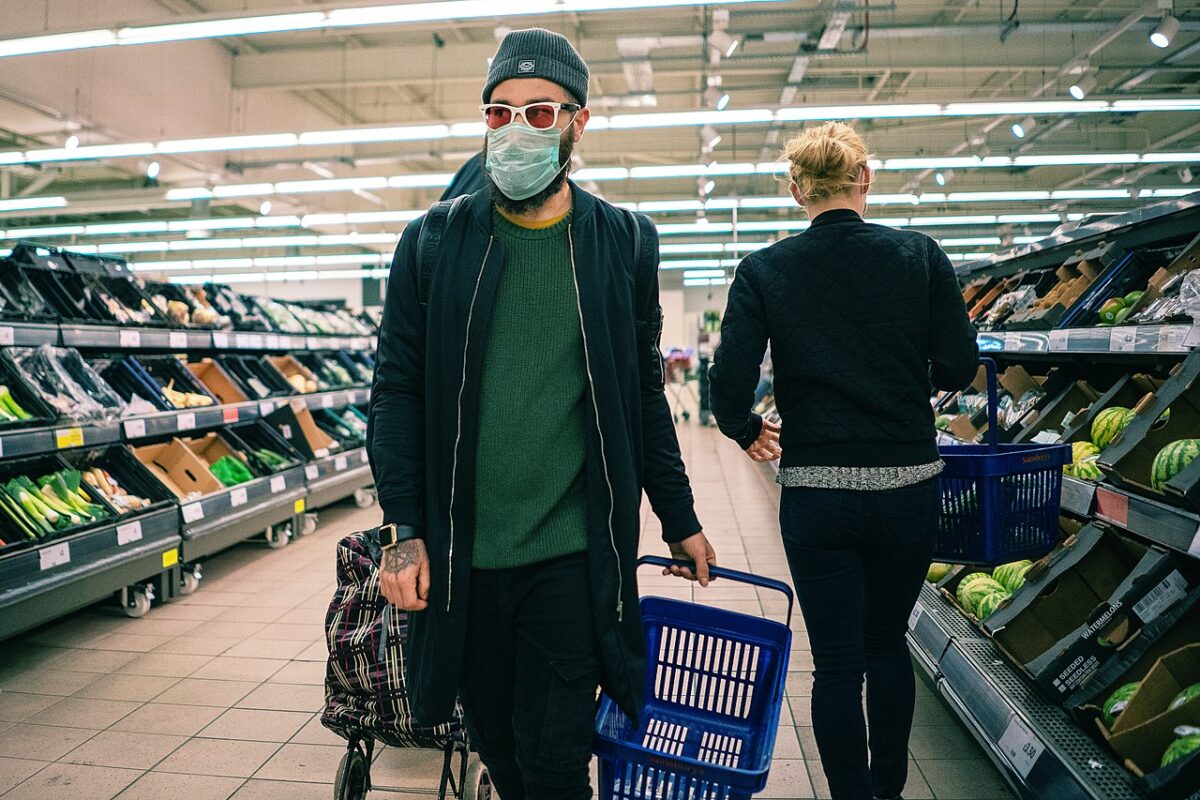My instinctive anti-social impulses are in full flight during these unsettling days of the coronavirus pandemic.
The need to maintain social distancing so as to stay safe and curb the spread of COVID-19 means that I’m obliged to avoid even loved ones. I was never much of a social butterfly, even at the best of times, but now I’m keeping my distance of everyone except my wife.
In the interests of preserving my sanity, I try to leave my house for a walk each day. I don’t go far because the longer I spend outdoors, the greater the chance of being infected by a passerby or by a rogue droplet in the air.
On excursions in the neighborhood, I retreat to the other side of the road when someone is heading in my direction. That’s what it has come to. I want to enjoy the benefits of walking without its potential hazards.
During these extraordinary times, I usually encounter only dog walkers, mothers pushing strollers and the odd solitary person. And because so many breadwinners have been laid off from their jobs in this economically uncertain era, I also cross paths with people whom I would normally not see during the morning or afternoon: couples in their 20s, 30s and 40s taking in the fresh air.
Since mid-February, much to my distress, I have met my two daughters only once and, sadly enough, was unable to hug or kiss them. Our respective meetings felt formal and distant.
Since the weather has improved of late, I have begun riding my bike again. Cycling is therapeutic, giving me a sense of freedom, releasing pent-up tension, breaking my routine, and enabling me to gauge the mood of Toronto, the city where I live.
But at the end of the day, our lives have been upended and suspended by this perilous, silent and insidious killer. Not since the great influenza pandemic of 1918 has humanity been so directly threatened.
Toronto is virtually deserted, even during mid-week when it should be bustling with verve, vitality and color. The streets and roads are practically empty, like on an early Sunday morning. Nearly all the shops are shuttered, as if we’re locked into a permanent mandatory holiday.
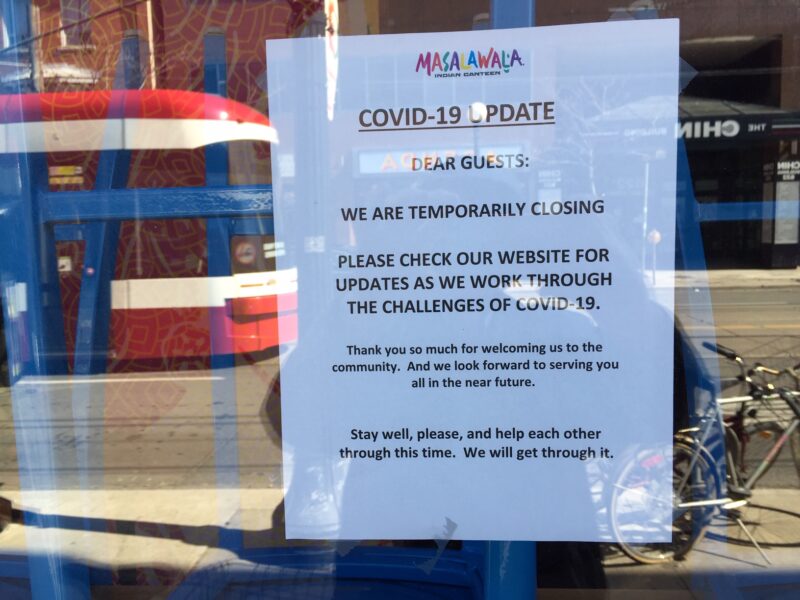
The restaurants and cafes are closed, though some offer takeouts and deliveries. Gone are the days when my wife and I could enjoy a meal at a favorite restaurant. We miss these moments.
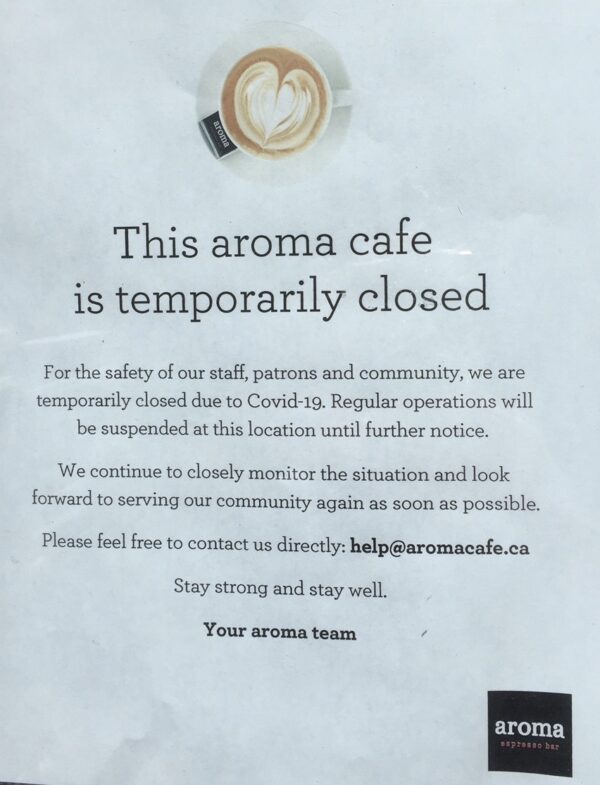
The parks are also closed off, though pedestrians are allowed to walk through the grounds to savor the first intoxicating days of spring after a long winter. I have read that High Park’s beloved cheery blossom trees, which bloom late in April, will be off bounds this year. What a pity.
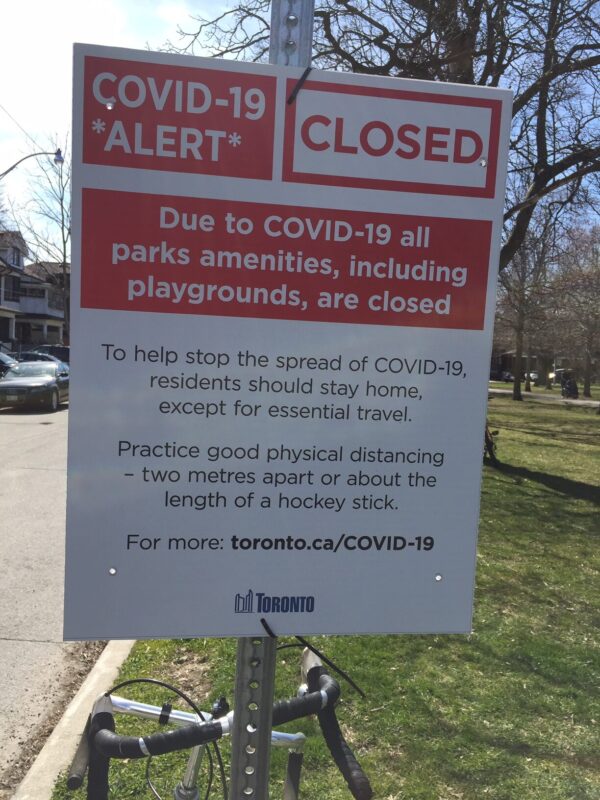
As the severity of COVID-19 has sunk in, locals have donned face masks with increasing frequency. Last month, they were rarely seen. In the past two weeks, there has been a sea change, with one-third to one-half of the population wearing masks covering their mouths and noses.
I still have not accustomed myself to the eerie sight of masks, but I wear one when necessary. Last week, when I was compelled to visit a dentist to have a broken tooth fixed, I entered the waiting room with a mask, the only patient to have taken that precaution. To further protect myself, I waited for my appointment on a staircase, at least 10 feet away from the nearest patient, four more feet than recommended.
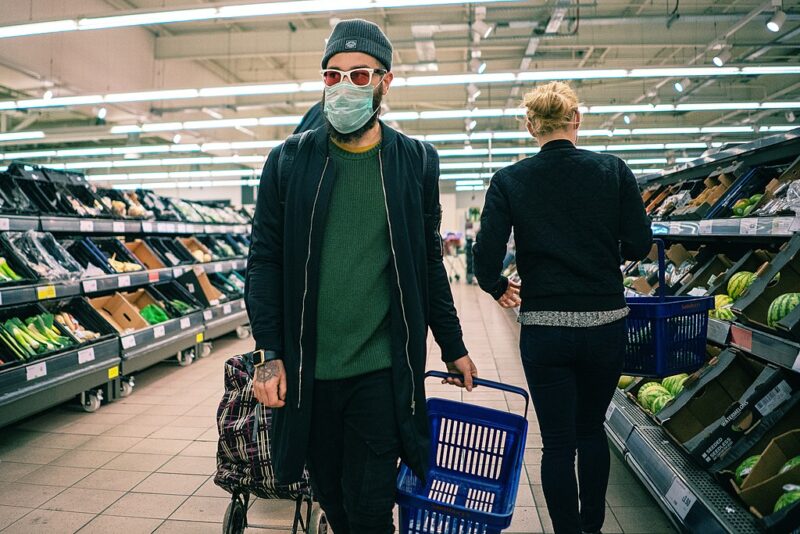
Of late, I have had a recurring dry cough which generally flares up a few times a day. It had me worried at first, since a cough is one of the virus’ symptoms. But I have not experienced any of the other telltale symptoms, like shortness of breath. Otherwise, I feel perfectly fit and fine. I can only surmise that this periodic cough is probably a seasonal cold.
If times had been normal, I would have visited my doctor already for a physical examination. But now only a telephone consultation is possible. He prescribed a dry cough medicine, and I have been using it ever since.
Food shopping has become an ordeal since I stopped going into stores a while ago. Local supermarkets like Loblaws have enacted social distancing measures, but I’m still staying away. I shop online nowadays, opting for curbside pickups at supermarkets.
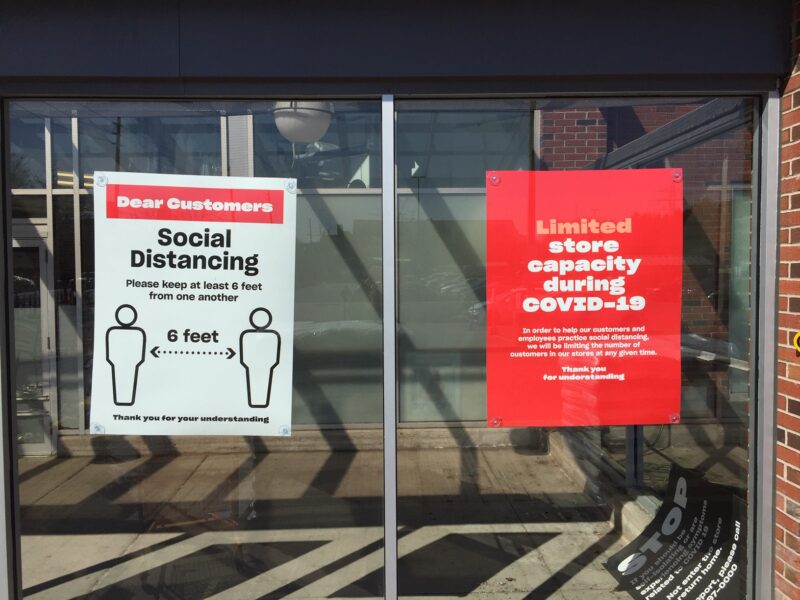
Yet this can be an exercise in futility and frustration. Slots can be exceedingly difficult to find and websites are not always in good working order. Shortages of hand sanitizers, disinfectants and latex gloves persist. And mundane items such as navel oranges, bananas and probiotic yogurt are in short supply as well.
This situation reminds me of my visits to Iron Curtain communist states like Poland, Bulgaria and East Germany in the late 1970s and early 1980s, when consumer goods that Westerners took for granted were simply unavailable in cities such as Warsaw, Sofia and East Berlin.
Some people are better prepared for COVID-19 than others. My daughter’s boyfriend, a pessimist who believes that another depression is imminent, bought $5,000 worth of dried goods long before the pandemic was taken seriously by the public. He has stocked up on enough rice, beans and who knows what for the next six months. At heart, he must be a survivalist.
I’m trying to roll with the punches in the spirit of resilience, and I’m confident we will gradually return to the status quo ante in phases. But the shift to normalcy may take longer than any of us can imagine.
For now, the coronavirus interregnum has etched itself inside my memory and consciousness. I’m sure it will have a lasting effect on this generation and will surely be a topic of conversation in hundreds of years from today.
